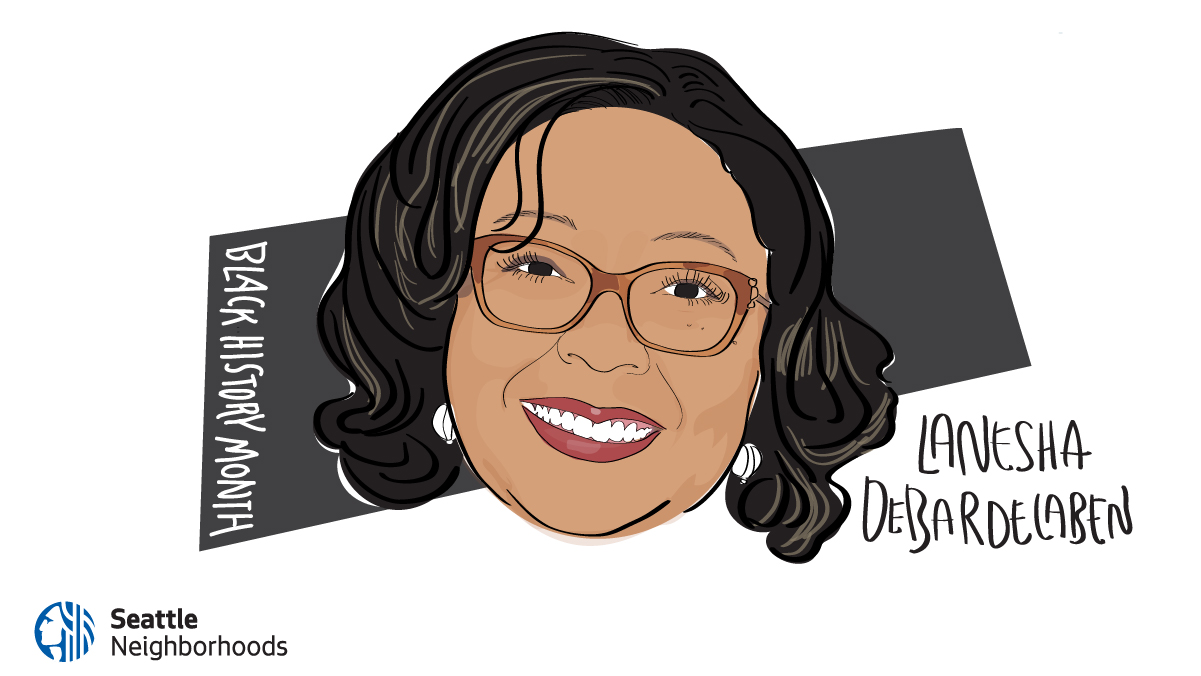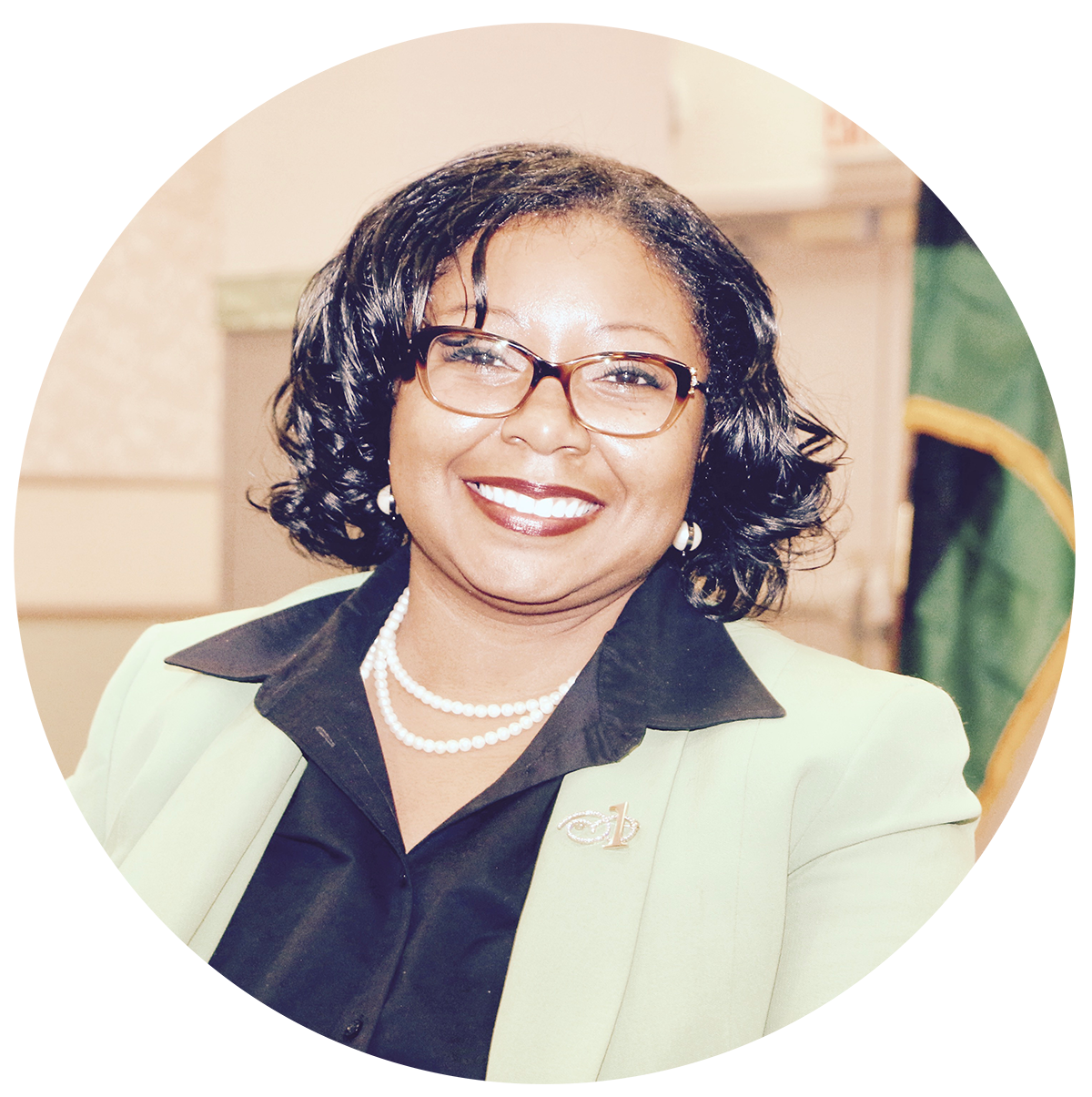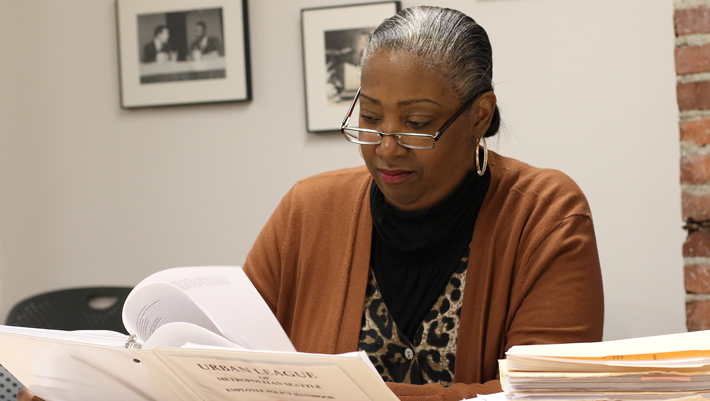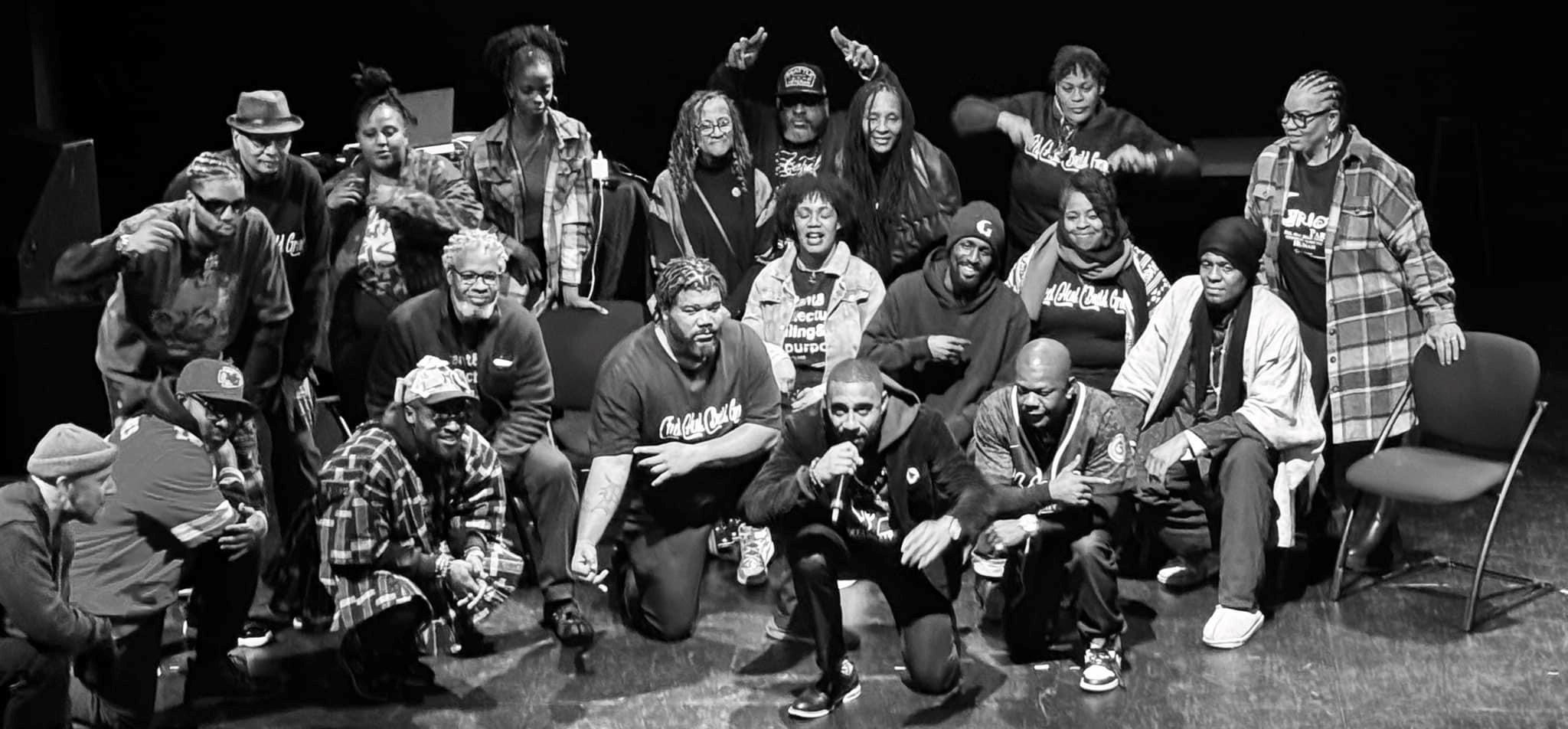
In celebration of Black History Month, we are hosting a series of profiles and stories to amplify and honor people, businesses, organizations, and events connected to the history of Seattle’s Black community.
Five Lessons from the Past: How History Can Inspire a More Equitable Future
by LaNesha DeBardelaben
It is to history that we owe our frames of reference, our identities, and our aspirations.
James Baldwin
History is full of trauma, tragedies, trials, and triumphs. The closer we look at history, the more fully we can understand the depth and breadth of our humanity at our best and our worst. There is no better time to reflect on the expansiveness of our collective humanity than during Black History Month. Black History Month provides us an opportunity to ponder the unforgettable and resilient African American historical experience. Without the pioneering efforts and tremendous advancements of Dr. Carter G. Woodson who established the first Negro History Week in 1926 and Dr. John Hope Franklin who wrote the influential classic From Slavery to Freedom: A History of African Americans, Black History Month would not influence us as deeply as it does. Black History Month calls us all to look back as we press forward. As we celebrate the contributions of African Americans and acknowledge our resiliency, I want to share five lessons that will help shape a more equitable future.
First, like politics, all history is local. It is central to our community, neighborhoods, and resides right within our families. The activism that occurred on the streets of Seattle and throughout King County changed race relations here, at home. Civil rights demonstrations such as pickets, economic boycotts, sit-ins, and mass marches occurred not only in the American South but also here in the Pacific Northwest, in the Emerald State. Seattle established one of the earliest chapters of the NAACP in the county in 1913 and had one of the most active Congress of Racial Equality (CORE) chapters in the West. Seattle’s chapter of the Black Panther Party, founded in April 1968, was the first in the nation to be established outside of California and was one of the longest serving chapters in the country. Historic struggles for Black liberation happened right here.
Secondly, Black resistance certainly happened here, and so did Black trauma. Restrictive racial covenants kept neighborhoods in our city and throughout King County segregated and unequal for decades. When Dr. Martin Luther King Jr. visited Seattle in 1961 at the invitation of his Morehouse College classmate and fraternity brother Rev. Dr. Samuel McKinney of Mt. Zion Baptist Church, discrimination was rampant in Seattle across a variety of categories, including housing, employment, education, and police harassment. Seattle’s civil rights activists, for instance, picketed local Safeway stores because of unfair and discriminatory hiring practices until those stores fairly hired African Americans.
Thirdly, while we look back at history, we are simultaneously living in historic times. Over the past year, we navigated our second year of the coronavirus pandemic, saw a violent attack on the nation’s Capital, and eventually watched the first Black and Asian woman take an oath to serve as our nation’s Vice President. We not only look back at history, but we are living within historic times. Though we as a community and nation will undoubtedly continue to face profound challenges in 2022 and beyond, Black history will always equip us with the inspiration and fortitude to handle all of them. Black history will always be a tool to build a more equitable future, to learn and grow from the actions of our ancestors is a gift that should be honored with deep reverence.
Fourth, in these recent times and throughout the history of this country, Black voices have relentlessly spoken out for truth and justice. Our nation and community are at a crossroads, and it is up to us all to continue to speak out against systemic racism, political polarization, and anti-Black forces that seek to tear us apart. As Bryan Stevenson of the Equal Justice Institute says, “we all have a responsibility to create a just society.” Creating a just society starts with acknowledging the unjust past we have endured. While 28 days in one month does not enable us to understand the magnitude of 400 years of injustice toward Black lives, it does give us space to look back and consider what each of us can do to build a more equitable future.
Lastly, Black museums preserve the stories of the past to help us remember and respect our shared humanity. At the Northwest African American Museum, Black history is centered and celebrated 365 days a year. We use Black history, art, and culture to inform and uplift our regional community, advance justice and equity, and build our future. This Black History Month, we are holding a conversation with Lonnie Bunch, the nation’s first African American Secretary of Smithsonian Institution and founding director of the Smithsonian’s National Museum of African American History and Culture. We are uplifting our cultural stories while spotlighting local Black-owned businesses. We are hosting film screenings that shed light about some of the most influential figures of Black history. We are hosting activations that highlight the Black history and art of the Pacific Northwest. We are using heritage to cultivate healing and hope every day of the year. Our future collective health, justice, and equity relies upon what we all choose to do today.
This Black History Month, let us do something in our neighborhoods to demand equity in education, health care, voting rights, housing, economic empowerment, and beyond. Give to a Black-led organization. Invest in the dreams of Black youth. Repair the pain of the past. While the past is a very complex place full of horrors, harm, and despair, our future can be what we choose to make it. Let’s use the past to plant seeds to nurture generations to come and build a pathway for a more equitable future we all deserve.



